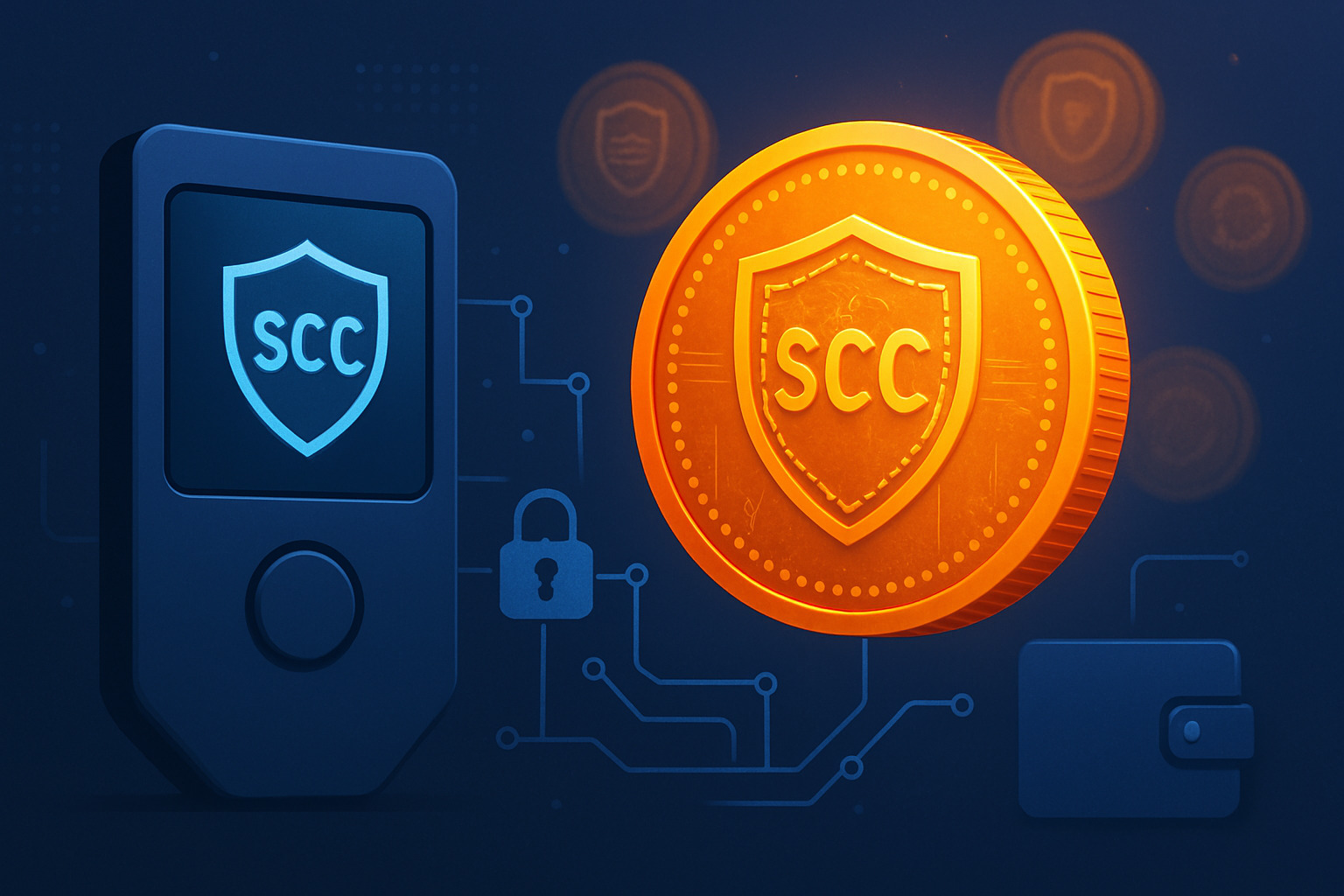
Imagine waking up to find your SCC tokens missing. No hacks, no phishing scams—just a wallet that failed you. Sounds like a nightmare, right? The truth is, not all wallets are built to keep your SCC safe. Some look good on the surface but have weak security, while others make you jump through hoops just to access your own funds.
If you’re holding SCC, you need a crypto wallet that does more than store coins. It should protect your assets like a vault, be easy to use, and work seamlessly with the SCC ecosystem. Let’s break down the best options so you can choose one that won’t let you down.
Hardware Wallets: The Gold Standard for SCC Security
If security is your top priority, hardware wallets are your best bet. These physical devices store your private keys offline, making them nearly impossible to hack. Unlike software wallets, they aren’t vulnerable to malware or phishing attacks.
Ledger Nano X
The Ledger Nano X is widely respected in the crypto space, and for good reason.
- Stores SCC offline, away from hackers
- Requires physical confirmation for transactions
- Supports multiple cryptocurrencies, so you can manage all your assets in one place
- Connects via Bluetooth, letting you check balances on the go
The downside? It’s not free. But if you’re serious about SCC security, the investment is worth it.
Trezor Model T
Another top-tier choice, the Trezor Model T, offers:
- A touchscreen for better user experience
- Open-source firmware, meaning the code is transparent and regularly reviewed
- A secure recovery process if your device is lost
Trezor might not have Bluetooth like the Ledger Nano X, but some see that as an extra layer of security.
Software Wallets: Convenience with Some Trade-offs
Software wallets live on your phone or computer, making them more convenient but slightly less secure. If you prefer fast access to your SCC without carrying a physical device, these options work well.
Trust Wallet
Trust Wallet is one of the easiest ways to store SCC. It’s a mobile app that lets you send, receive, and stake SCC with just a few taps.
- Private keys stay on your device, not on a centralized server
- User-friendly interface for beginners
- Compatible with decentralized apps (DApps)
However, since it’s a hot wallet (always connected to the internet), it’s not as secure as a hardware wallet. If you use Trust Wallet, enable all security features—PIN, biometric login, and passphrase backups.
Atomic Wallet
Atomic Wallet is a great choice if you want full control over your SCC without relying on third parties.
- Private keys never leave your device
- Built-in exchange lets you swap SCC for other coins
- Supports staking to earn passive income
One limitation is that it doesn’t have the same security depth as hardware wallets. If your device is compromised, so is your wallet.
Web Wallets: Quick Access with Risks
Web wallets are accessible from any browser, making them convenient but also more exposed to security threats. If you use a web wallet, make sure it’s from a trusted provider and never store large amounts of SCC in it.
SCC Core Wallet
The SCC Core Wallet is designed specifically for SCC holders. It’s an official wallet that connects directly to the blockchain, offering full control over transactions.
- No third-party involvement—your keys, your coins
- Supports staking for passive income
- Requires more storage space and syncing time compared to lightweight wallets
This wallet is ideal for SCC enthusiasts who want full node functionality, but it might be overkill for casual users.
MyEtherWallet (MEW)
For those who prefer a web-based interface, MyEtherWallet (MEW) supports SCC and other Ethereum-based assets.
- Open-source, meaning security is always being reviewed
- Can be used with hardware wallets for extra security
- Requires careful handling—one wrong click and you could fall for a phishing attack
If you use MEW, always verify the website URL before logging in. Fake MEW websites have tricked many users into giving away their private keys.
Mobile Wallets: SCC at Your Fingertips
If you want to check your SCC balance anytime, mobile wallets offer a balance between security and ease of use.
Edge Wallet
Edge Wallet is known for its user-friendly approach to crypto security.
- Auto-encrypts private keys, adding a layer of protection
- Simple login process without sacrificing security
- Multi-currency support, so you don’t need separate wallets for different assets
Edge is a solid choice if you prefer managing SCC on your phone. However, because it’s an internet-connected wallet, avoid keeping large amounts of SCC in it.
Coinomi
Coinomi has been around for a long time, earning a reputation as a reliable mobile wallet.
- Private keys are stored on your device, not on a cloud server
- No KYC (Know Your Customer) process, so you stay anonymous
- Supports multiple blockchains, making it versatile
While Coinomi is well-regarded, it’s not open-source, meaning security experts can’t fully audit its code. That’s something to consider if transparency matters to you.
Cold Wallets: The Ultimate Protection for SCC
If you don’t plan on trading SCC frequently, cold wallets offer the best security. These are completely offline storage methods, making them immune to hacks.
Paper Wallets
A paper wallet is literally a piece of paper with your private keys printed on it. Sounds low-tech, but it’s actually one of the safest ways to store SCC—as long as you keep it safe.
- Immune to online attacks
- No software vulnerabilities
- Only risk is physical damage or loss
If you go this route, store your paper wallet in a fireproof safe or safety deposit box.
Air-Gapped Wallets
Air-gapped wallets are devices that have never been connected to the internet. This means even if a hacker controls your computer, they can’t access your SCC.
- Completely offline, making hacking impossible
- Best for long-term SCC storage
- Setup can be complicated for beginners
An example of this is creating a wallet on an old laptop that has no WiFi or Bluetooth, then using a USB to sign transactions offline.
Final Thoughts
Not all wallets are created equal, and the best one for SCC depends on how you use it. If security is your top concern, go for a hardware wallet like Ledger or Trezor. If you want easy access, Trust Wallet or Atomic Wallet are solid choices. For long-term storage, nothing beats an air-gapped or paper wallet.
The key is to never rely on just one layer of protection. Use strong passwords, enable two-factor authentication, and always have a secure backup. With the right wallet and good security habits, your SCC will stay safe—right where it belongs.




